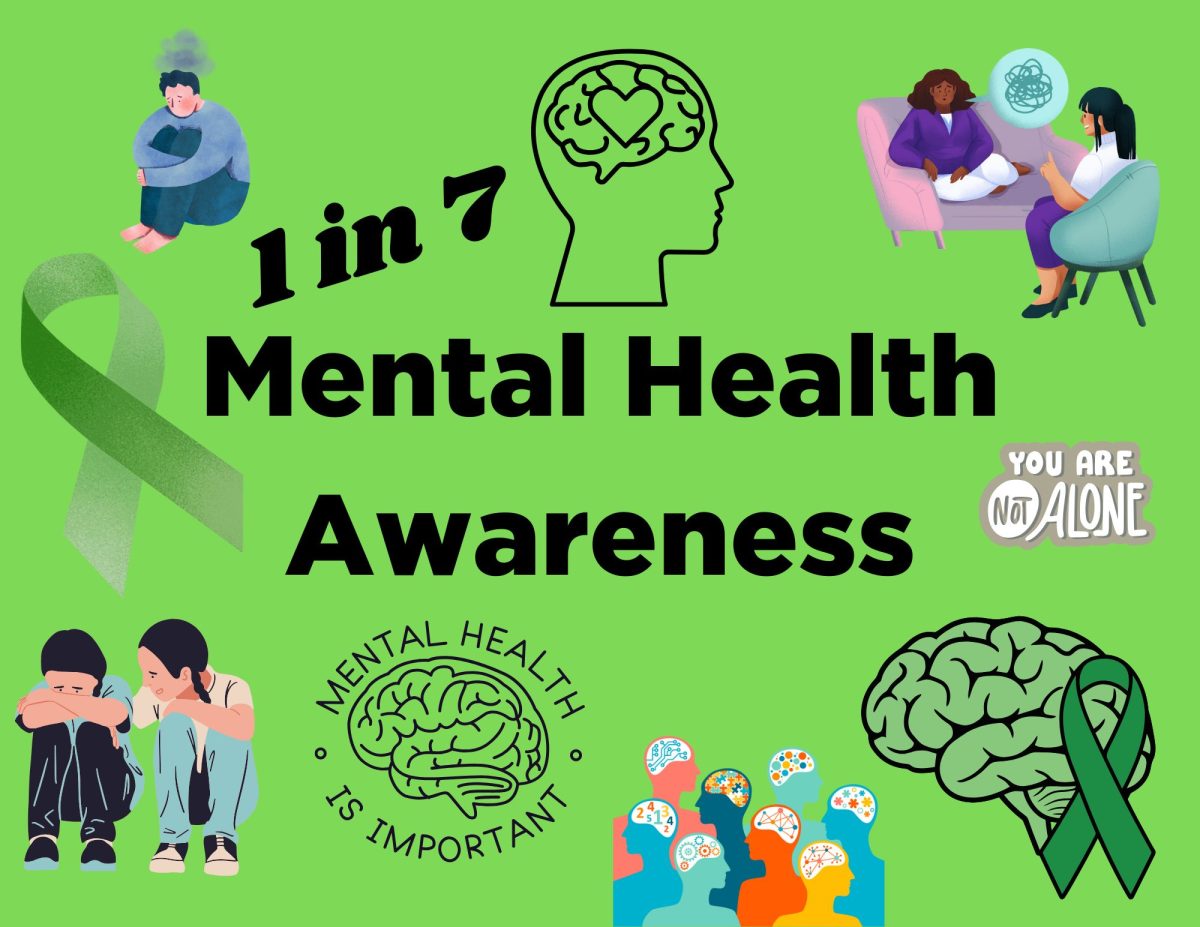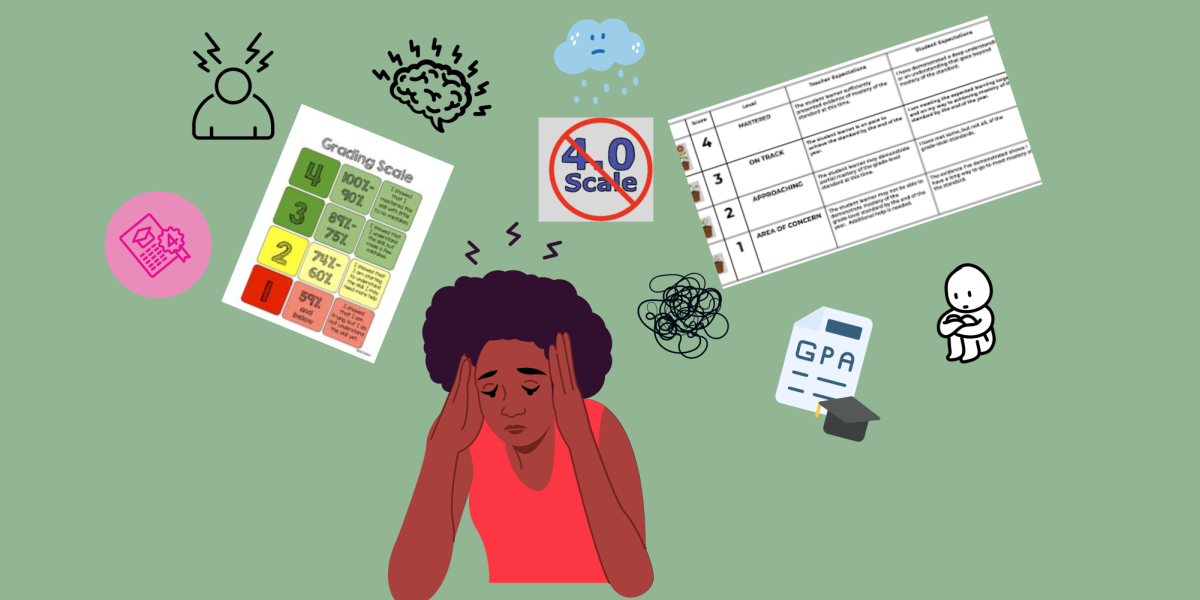May is Mental Health Awareness Month. Mental Health Awareness is important to bring attention to the radical effects of mental health on an individual and their community. A United Nations Children’s Fund analysis, based on estimates from the Institute for Health Metrics and Evaluation, shows that one in seven – or 14% – of teens globally suffer from a mental health disorder. The Office of Population Affairs says that 49.5% of adolescents in the United States had or have a mental health disorder; that is three times the global percentage.
These disorders can affect anyone, and cases are only rising in numbers. According to the National Center for Education Statistics, 69% of public schools reported a rise in mental health concerns in 2021-2022. According to a 2019 report from the National Library of Medicine, 20% of teens ages 3 through 17 in the U.S. suffer from a mental health disorder, and suicidal behavior among high school students increased by 40% from the prior decade.
A mental health disorder is an umbrella term for an illness that affects the mood, behavior and thoughts of an individual. Mental health disorders are usually formed by adverse factors such as poverty, trauma, disability and inequality. Despite this, these illnesses can affect anyone.
Cases of mental health disorders can have detrimental effects on people’s lives. Often, individuals with more extreme disorders can start to develop suicidal thoughts. A UNICEF analysis based on WHO Global Health Estimates showed that in 2019, suicide was the fourth main cause of death for boys ages 15 through 19, with more than 600,000 deaths, and the third main cause of death for girls ages 15 through 19, with more than 500,000 deaths. Suicide rates from 2008 to 2020 have risen 16% for people age 12 and older, according to the National Library of Medicine.
Some examples of mental health disorders are depression and anxiety disorders. According to the Mayo Clinic, symptoms of depression can include constant feelings of sadness, a loss of interest in previously preferred activities, mood swings, sleeping too much, insomnia, a lack of energy, etc. There is no clear cause for depression, but factors that increase the risk of depression include traumatic events, genetics, brain chemistry, low self-esteem, etc.
According to the Mayo Clinic, anxiety disorders can lead to overarching issues like excessive fear, excessively strong reactions to situations, and dread. There are many types of anxiety disorders, such as social anxiety, specific phobias, separation anxiety, panic disorder, etc. Symptoms of an anxiety disorder can include hyperventilation, feeling nervous or tense, trouble sleeping, increased heart rate, etc. Like depression, there is no clear cause for anxiety disorders, but life experiences and inherited traits appear to trigger anxiety.
Other examples of mental health disorders are attention deficit hyperactivity disorder and obsessive-compulsive disorder. Symptoms of depression and anxiety can be heightened when diagnosed with these disorders. According to the Mayo Clinic, ADHD affects attention span, fidgeting, and compulsive behavior. There are two types of ADHD: predominantly inattentive and predominantly impulsive and hyperactive. Some people can have a combination of both types. Predominantly inattentive is characterized by trouble focusing or getting organized, and predominantly impulsive and hyperactive can be characterized by acting without thinking and having too much energy. ADHD, while the exact cause is unknown, is thought to be caused by genetics.
According to the Mayo Clinic, OCD, or obsessive-compulsive disorder, entails unwanted fears or obsessions that lead to repetitive behaviors –or compulsions– that can delay daily functioning. These compulsions can also be mental, like seeking reassurance or trying to reassure oneself. Symptoms of OCD obsessions can include a need for order or balance, fear of contamination, intrusive thoughts of aggression, etc. Symptoms of OCD compulsions can include arranging objects to face the same way, following a strict routine, counting in certain patterns, seeking reassurance, checking, etc.
It can be difficult to speak out when an individual is suffering from a mental illness – but if not acknowledged – conditions can worsen over time, so it is important to reach out for help from a medical professional when symptoms are shown. Treatments for depression include psychotherapy and medications. These can be taken to manage depression, but more extreme cases can call for outpatient treatment programs or hospital stays. Some mental disorders may not have cures, but can still be managed with help from a medical professional. For example, OCD cannot be prevented, but psychotherapy and medication can help control it. Anxiety disorders are also treated with psychotherapy and medications. ADHD can be controlled by medication, behavior therapy, counseling, and education services.
However, you do not need to be a medical professional to help. There are ways to help someone if they are suffering from a mental health disorder. If you suspect someone you know is suffering mentally, talk to them. Listening to them and letting them be heard is a great step—it can let them know they are not alone. It is difficult to reach out, and sometimes they just need a push in the right direction.
If you are suffering from a mental health disorder, you are not alone. Talk to someone you trust; you don’t have to carry all that weight by yourself. You are not a burden. Reach out to a medical professional, they can give you the help you need to get past whatever you are going through. If you need help, a 24/7 helpline and other resources are there to help you at 988 Lifeline. Mental health can be overwhelming, but it doesn’t have to control you.


















